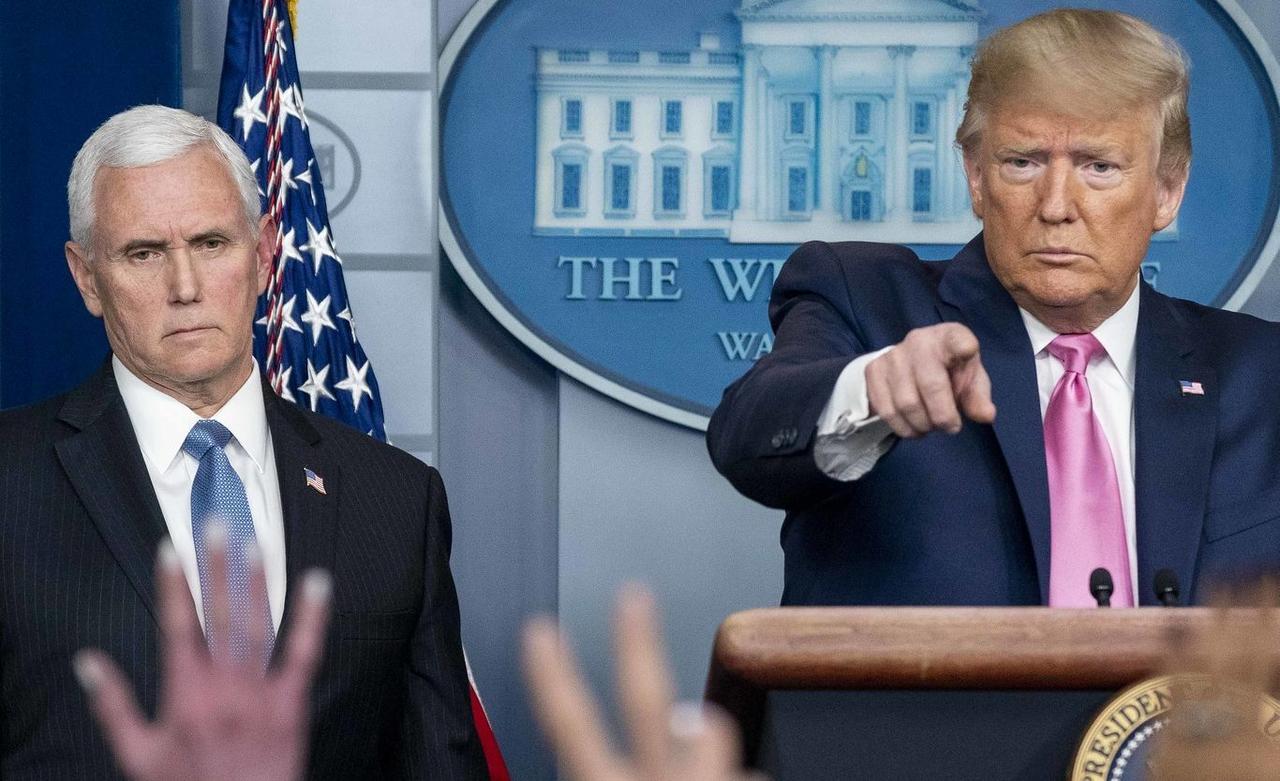Authored by Patrick Buchanan via Buchanan.org,
Not until well into the Democratic debate Tuesday night did the COVID-19 coronavirus come up, and it was Mike Bloomberg, not a CBS moderator, who raised it:
“The president fired the pandemic specialist in this country two years ago,” the former New York mayor said.
“There’s nobody here to figure out what the hell we should be doing. And he’s defunded the CDC.”
Not 24 hours later, President Donald Trump, home from India, was in the White House briefing room, flanked by the nation’s foremost health experts, deputizing Vice President Mike Pence to head the task force to lead America’s battle against the spreading disease.
Yet, by Thursday noon, the Dow Jones average was down 3,000 points on the week, a 10% plunge from its recent all-time high.
Trillions of dollars in equity value had been wiped out.
The great bull market of the Trump presidency may be history.
Though only 60 Americans are known to have been infected, and none has yet died, fear has begun to grip the nation as well as the world. Yet, as of now, the numbers don’t justify the emotion.
The death toll as of Thursday was 2,800, out of 82,000 cases of coronavirus worldwide. The great majority of these are in China, where the virus originated, though the disease has spread to every continent, with Italy and South Korea the hardest hit outside of China.
Whatever happens medically – the mortality rate of the virus is between 2 and 3% – it’s hard to see how the world averts a recession if COVID-19 is not soon contained and controlled.
Already, Democrats are piling on Trump for cutting funding for the Centers for Disease Control and Prevention and failing to reflect the seriousness of the threat. And the issue does present a challenge to Trump’s presidency. His handling of it may determine his stature as chief executive.
Yet the issue is also tailor-made for Trump.
First, the disease comes out of Xi Jinping’s China, not Trump’s USA.
Second, the president occupies what Theodore Roosevelt called the “bully pulpit,” the White House. He can use that pulpit daily to command the airwaves and inform, lead, unite and direct the nation during what could be a months-long crisis. And Trump alone has the power to declare a national emergency, should that be needed.
If Trump acts as a leader, urging unity in the struggle to contain the virus and discover a vaccine, the hectoring from the Democratic left, already begun, can come to be seen as unpatriotic.
Also, Trump’s probable opponent this fall, who would be in charge of preventing the coronavirus from spreading like the Spanish Flu of 1918-19, is Bernie Sanders. And what are Sanders’ credentials and plans?
Under “Medicare for All,” Sanders intends to nationalize the entire U.S. heath care system and abolish the private health insurance plans of 140 million Americans who now depend on them.
As for the pharmaceutical industry, uniquely situated to assist in the crash effort to find a cure for the coronavirus, Sanders will confiscate its profits and put those profiteers out of business.
Still, given the alarming news coming from countries all over the globe, there is a risk that by November, the U.S. and the world may have tumbled into a recession. Airlines are already canceling flights to and from Asia. Cruise ships are pulling into ports and off-loading passengers. Travel and tourism are suffering terribly. Schools are closing.
Chinese factories that produce essential parts for factories and finished products in the U.S., Europe and Asia are shutting down. Supply chains are being severed. Shortages are cropping up.
The Japanese are talking of canceling the Olympics. If the virus spreads here, the question arises: Will our two parties still hold their nominating conventions this summer in Milwaukee and Charlotte?
The chickens of globalization are coming home to roost.
In recent decades, America’s economic and political elites of both parties surrendered America’s economic independence for globalism, a new interdependence of nations, where we Americans no longer rely on ourselves alone for the vital necessities of our national life.
That decision is now being exposed as the folly against which Hamilton and economic nationalists always warned.
According to The Washington Post, critical ingredients of medicines and drugs, upon which many American lives depend, are made in Chinese factories now in danger of being shut down.
In the ongoing struggle between nationalism and globalism, the globalists are taking a beating. Like the Chinese and Japanese and Koreans, Americans are not going to be looking to the WHO or U.N. to ensure their health, but to their own nation-states. And if a pandemic threatens, transnationalism’s “open borders” ideology is not a policy that will bring universal acclamation.
Like Trump’s America, all nations, in this crisis, are going to put their own people first. As they should.
